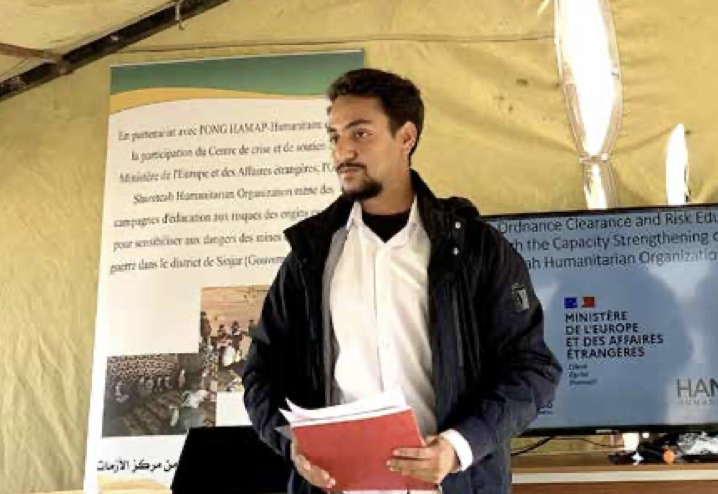An interview with Zakaria, coordinator for HAMAP-Humanitaire in Iraq since 2019
What are your missions in Iraq?
I coordinate the activities of HAMAP-Humanitarian in Iraq. I am responsible for several teams, made up of different technical and support functions. I am also in charge of program management, financial aspects and reporting to donors.
What are the teams on site?
There are support teams (finance, logistics, purchasing, human resources, etc.) and teams of deminers. Some have been trained recently by HAMAP-Humanitaire, others have many years of experience in mine action. They are local Iraqi employees but also expatriates who advise, support and assist the technical staff on demining actions but also on the organization of operations and on quality control, to ensure that clearance activities take place in the best possible conditions.
What are the different phases of the project?
The program began in 2019. The first step was to find a reliable local partner. Once this partner was identified, it was a matter of implementing several projects, step by step, to enable this organization to strengthen its technical and organizational skills. Today, our local partner, Shareteah Humanitarian Organization, is one of the most active NGOs in the field of mine action in Iraq.
Why is the project important for the local population?
The project aims to raise awareness of the risks of explosive devices through education sessions to reduce mine-related accidents in the areas where HAMAP-Humanitaire works. We raise awareness among children and adults by developing their knowledge of mine action through games and the use of virtual reality headsets. The project also aims to identify contaminated areas in the Sinjar district, where there are remnants of mines and unexploded ordnance, in order to prepare the deminers’ action.
Why did you choose to go to Iraq?
I chose to go to Iraq because I specialized on the Middle East region during my studies. I didn’t have Iraq in mind, but it was a happy accident. And I discovered a country rich in multiple cultures, traditions and religions.
What is your life like there?
The life of an aid worker in Iraq is quite exciting, with travels throughout the country and very demanding tasks. It is an extremely rich social environment, where you meet a lot of passionate people, Iraqis and foreigners, working in the humanitarian field, in research or journalism
An anecdote about life in Iraq?
People often downplay the degree of diversity that exists in Iraq. It is not uncommon to find yourself in front of Iraqis who cannot communicate with each other because they do not have a common language. I have played the role of interpreter between an Iraqi who spoke Arabic and another who spoke Kurdish and English. I found myself translating from English to Arabic for an Iraqi Kurd who could not communicate with an Iraqi from southern Iraq.

